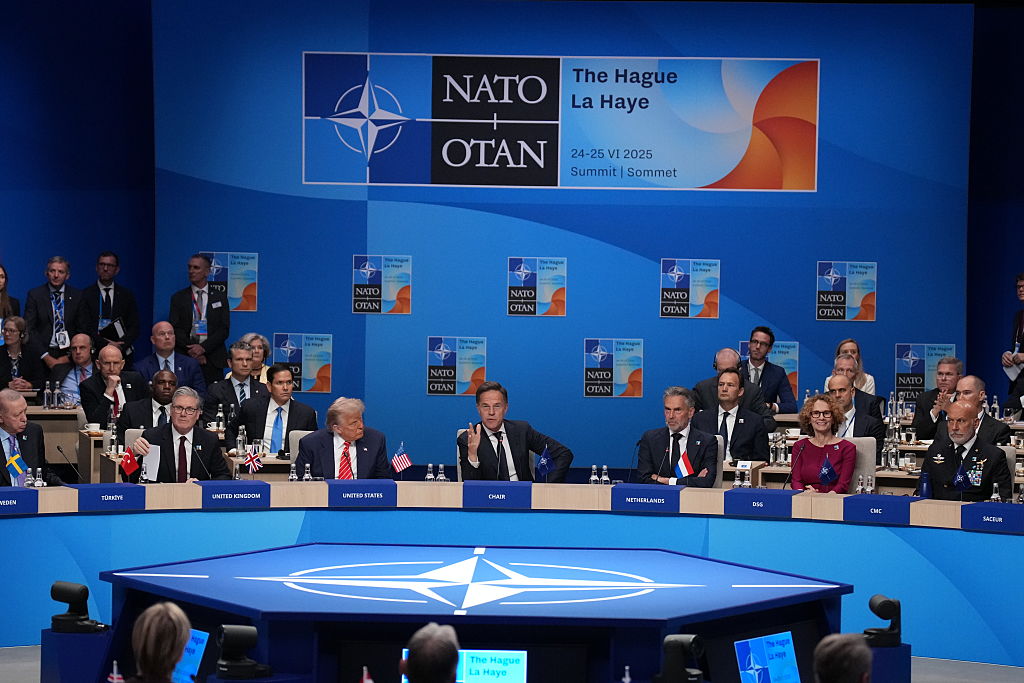In Europe’s summer heat, talk of civil war and regime change is spreading like wildfire and reaching new heights of intensity every week. Something deep has broken this year in the collective political psyche of the Old World. Our venerable democratic political culture, grounded in the idea of rules-based self-governance in the interests of a free people, has finally taken a turn down a very different track.
The anti-national policies, the rank incompetence and the abuses of state power by the ruling political elites have finally become intolerable to a critical mass of citizens. They are now fast realising that that the “democratic process” is rigged to perpetuate the problem and to keep the same old establishment and the traditional parties in control regardless of who wins elections.
It’s not merely that many governments have lost the trust of the people, but that they and key institutions of the state such as the police or the judiciary are increasingly seen as enemies of the people, from Britain to France and even Germany and further into Eastern Europe. It cannot be otherwise, given that successive governments in Europe – especially over the past decade – have flooded their countries with third-world migrants, have run down their national economies and public services, and have increasingly turned to authoritarian measures to suppress dissent and cover up their own crimes and corruption.
The charge sheet against these Ancien Régimes – from Net Zero and woke madness to open borders and censorship – is too long and well known to bear repeating in detail here. What has recently changed, though, is that a tipping point seems to have been reached, in at least two ways. First, the dysfunction and failure of our governments is too vast and blatant – whether through mind-boggling scandals now breaking out, like the Rotherham Pakistani rape gangs or a secret £7 billion UK Government scheme to flood Britain with Afghans; or through increasing crime or even the collapse of key infrastructures like the Spanish electric grid back in April.
The other factor that has helped tip the “civic balance” has to do with the increase in the sheer levels of public awareness of these issues. Only relatively recently has the accumulation of dissident commentary (especially online) turned previously-disparate stories of government inefficiency and heavy-handedness into a more coherent narrative of comprehensive, escalating and inexorable state failure coupled with deliberate, undemocratic self-preservation measures by increasingly desperate, sclerotic, late-Soviet-style regimes.
Britain is only the worst case study, especially with its new Online Safety Act provisions which allow the government to force platforms like X to block footage of migrant hotels (on British soil) and of anti-migrant protests from UK-based internet users. Incredibly, this means that Britons now have to use VPNs in order to find out aspects of what’s going on in their own country – something that we used to see only in places like China. Other European nations are on the same road to disaster, and perhaps the situation on the continent is in fact even worse if things like the EU-approved annulment of Romania’s presidential elections last December or the political banning of Le Pen from running in the 2027 French presidential are anything to go by.
The first step towards a true revolutionary situation has thus been taken. The public debate has crossed the proverbial Rubicon into a new psychological territory where the whole system of government (the regime) is seen as illegitimate to various degrees by perhaps a majority of citizens. Its (peaceful) overthrow can therefore be contemplated not just as a legitimate form of collective self-defence by the people, but as a necessary act to safeguard their common future before it’s too late, in absence of any other effective recourse.
It’s hard to see any come back from this state of affairs, given that the idea of “democracy” has been thoroughly compromised and is now increasingly seen as a sham and as a justification by the elites for coercive control. The road to revolution – and perhaps civil war – is now wide open.
But it is the second step where things get tricky. This is the (present) stage of starting to actually plan for an effective political revolution that can succeed not just in getting rid of an existing government or even the wider regime (including, potentially, its constitutional arrangements), but in putting in place something else that is better than we have now and that avoids even worse outcomes – such as bloody civil war or external intervention. The lesson of history is unambiguous on this point: The key difficulty in a real revolution is not displacing the old order, but in managing what comes next.
A great many wannabe revolutionaries and “radical reformers” don’t really think their political project through, not even half-way. This applies both to the conceptual or ideological aspect of what they’re looking to do – how will their alternative to the existing regime look like, how it will prevent further cycles of disruption – and to the practical aspect of actually overcoming the regime and taking full control of the state. There are great difficulties on both counts.
On the question of what exactly should follow a successful seizure of power by the “revolutionary forces” –whatever they may be – opinion will inevitably be widely divided. It already is. At one end of the spectrum, some want merely to fix (or repeal) a set of bad laws, fire a certain number of key civil servants (by way of bringing the Deep State to heel), and enact bold policy reforms to arrest the decay and reboot the country’s fortune. Essentially, they aspire to follow the Trump 2.0 model.
At the other end of the spectrum there will be those whose ambitions go still further. They envisage a much thorough purge of regime loyalists from across the state institutions; mass deportations including even of co-nationals of a second-generation immigrant background; extremely radical reforms, especially in terms of welfare cuts; mass firings across the state apparatus; and perhaps constitutional changes as well. Often in this camp will also be found those kinds of old-fashioned conservatives who want to restore some long-gone, even pastoral version of their country, complete with a full Christian revival across the land and in every family.
Setting on a credible and politically-effective vision for the post-regime future of the nation is no trivial thing. For one, the Trump 2.0 model is not replicable in any European country, for a variety of constitutional and practical issues – not least the economics of both his own campaign machinery and MAGA/Project 2025 ecosystem, and those of the USA overall, which are allowing him to carry out his stupendous policies such as obtaining $160 billion for immigration enforcement.
But the other major obstacle is the sheer size of the welfare-dependent class in European countries, and more broadly of those sections of the professional class such as judges, securocrats, artists, the mainstream media, or state-sponsored NGO managers, and many others, who are invested in the perpetuation of the current system. The balance of state-linked privileges and private enterprise is fundamentally different in Europe. Its net effect, when push comes to shove, will be to generate a massive counter-mobilisation against even a fraction of a radical reformist agenda that a “revolutionary” movement might want to bring in.
None of this means that constructing a radical platform is impossible and that a right-wing revolution cannot come about at all, or that it will be immediately snuffed out by elite-aligned opposing force. Rather, it means that the task of designing such a programme and platform is much harder than many realise. There is perhaps no better example of the difficulty – and ultimate failure – in keeping a revolutionary project going than England’s own experience during its 17th century Civil War and especially during Cromwell’s Protectorate – the only time Britain was a republic.
A great deal of political compromise and realism must be involved in order to build a revolutionary coalition which alone can withstand reactionary pressure from political opponents. Too often well meaning but politically naïve “revolutionaries” get carried away with radical thoughts of wide-ranging changes and reforms, forgetting how quickly opposition can and will build up once their plans infringe on the interests of others. It’s a tough old game.
But even if all of this is worked out and a support coalition base is secured for a revolutionary project, there remains the most daunting challenge of all: That of actually getting into power and dismantling the existing regime. The mistake that almost all supporters of anti-establishment parties and movements across the West – whether it is Reform in the UK or RN in France or AfD in Germany and so on – is to believe that they can still win power at the ballot box, that it’s all about winning the next election.
This is likely not true anymore. The rules have changed. Established regimes across Europe, who feel besieged by the “far right” and by “populists”, have already proven their willingness to go to great lengths to block their opponents using any and all means at their disposal. As already mentioned, we’ve seen Romania annulling an election in which a national-populist candidate was poised to win the presidency. In France, Le Pen has been banned from running again, and her party’s HQ was raided by the police. In Germany the AfD has officially been classified as “extremist”; while this has now been challenged in the courts, the designation has not actually been withdrawn – only suspended. In America itself, the 2020 election saw industrial-scale fraud by the Democrats, and subsequently Trump was hounded through the courts and even arrested.
Aside from using a politicised judicial system and police to hound their political enemies at party leadership level – and also targeting whole party organisations – the incumbent regimes in advanced Western countries can also deploy an increasingly sophisticated array of other instruments against individual dissenters. One of this is de-banking, ie the freezing or closing of people’s bank accounts (by their own banks) for their political activity. We have already seen Canada’s former Trudeau government pioneering the de-banking of some of the trucker protesters in 2022. Nigel Farage was de-banked in 2023 by Coutts over his “values”.
Then there is the vast expansion of the legislation related to “hate speech”, which has now become so ambiguous and lax in its criteria as to effectively expose any public expression of strong political views to the risk of arrest and prosecution. Again, Britain is sadly leading in this respect.
Another example is the double-standard in the policing of protest – with left-wing Antifa-type thugs and pro-Palestinian jihad groupies given protection and even police escort, while white nationalists get targeted and arrested; or in the covert surveillance of what is deemed to be “extremism”. The fact of the matter is that the state has the means and the will to concentrate its power in order to stunt the spread of organised dissent beyond a certain level.
All these tools, and others – to include, for example, the media manipulation and propaganda directed at its own population – are now used, increasingly more, to deter regular citizens from joining anti-establishment movements and engaging in meaningful protest activity. If the situation calls for it, more such instruments will be set up and used to try to contain the growing popular revolt.
In recent years all possible masks have fallen and the so-called “democratic” regimes of Europe have shown they are willing to rewrite the rules of the political game as they see fit, and do “whatever it takes” in order to cling to power. Defeating such a formidable, shape-shifting opponent requires serious political planning and strategy, and disciplined leadership. The political struggle for real change will be much more difficult, and will be conducted on radically different terms by the end, than would-be revolutionaries imagine today. But there is no turning back now.






Europe still has no realistic plan on Ukraine